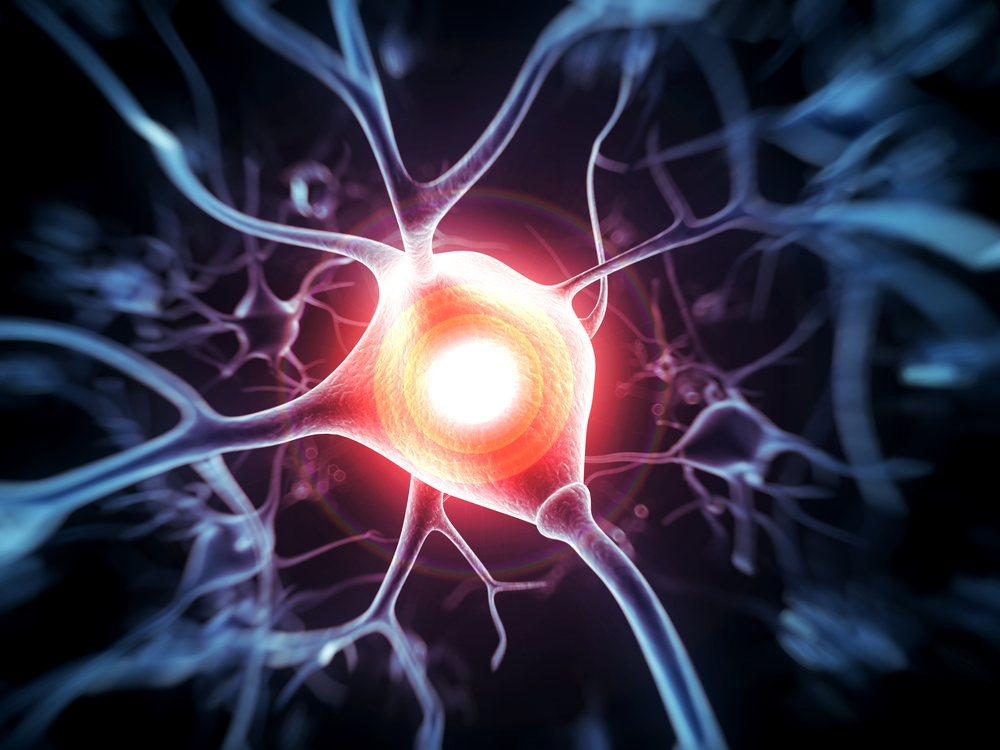Cell Metabolite Reduces Neuronal Death in ALS, Study Shows
Written by |

 In a new study entitled “Neuronal death induced by misfiled prion protein is due to NAD+ depletion and can be relieved in vitro and in vivo by NAD+ replenishment,” researchers report that in protein misfolding neurodegenerative diseases such as Alzheimer’s, Parkinson’s and Amyotrophic Lateral Sclerosis, neuronal death is triggered by the lack of nicotinamide adenine dinucleotide (NAD+). The study was published in the journal Brain.
In a new study entitled “Neuronal death induced by misfiled prion protein is due to NAD+ depletion and can be relieved in vitro and in vivo by NAD+ replenishment,” researchers report that in protein misfolding neurodegenerative diseases such as Alzheimer’s, Parkinson’s and Amyotrophic Lateral Sclerosis, neuronal death is triggered by the lack of nicotinamide adenine dinucleotide (NAD+). The study was published in the journal Brain.
Amyotrophic Lateral Sclerosis, together with Alzheimer’s, Parkinson’s and Huntington’s diseases, are a group of neurodegenerative disorders characterized by aggregation of misfolding proteins. Prion diseases, such as bovine spongiform encephalopathy, commonly referred to as “mad cow disease,” and its human equivalent, Creutzfeldt-Jakob disease are also disorders triggered by the accumulation of misfolding proteins in the brain. Notably, what triggers the death of neurons in these pathological settings remains incompletely understood.
Here, a research team at The Scripps Research Institute (TSRI), Florida tackled neuron death in prion diseases by using a misfolded prion protein, the TPrP, that due to its high toxicity induces neuron cell death. The team discovered that neuronal cells exposed to toxic TPrP exhibited a marked decrease in NAD+ (short for nicotinamide adenine dinucleotide), a metabolite found in all living cells with crucial functions in energy production and cell homeostasis. They found that depleting NAD+ from cells results in an abnormal activation of autophagy (a major intracellular degradation pathway) and apoptosis (a programmed cell death pathway). While in vivo toxic prion accumulation results in hippocampal neurons degeneration and motor impairment, the authors show that restoring NAD+ levels via intranasal injection prevents both pathological symptoms in a dose-dependent manner.
The findings suggest that a new therapy based on NAD+ replenishment has the potential to prevent neuron degeneration in neurodegenerative diseases associated to protein misfolding.
Corinne Lasmézas, a TSRI professor and study leading author commented in a press release, “Our study reveals a novel mechanism of neuronal death involved in a neurodegenerative protein-misfolding disease. Importantly, the death of these cells is preventable. In our study, ailing neurons in culture and in an animal model were completely rescued by treatment, despite the continued presence of the toxic misfolded protein. This work suggests treatment strategies for prion diseases — and possibly other protein misfolding diseases such as Alzheimer’s.”
The team recently received a 1.4-million dollar grant from the National Institute of Neurological Disorders and Stroke (NINDS) to translate their results into drug candidates for restoring NAD+ levels.





